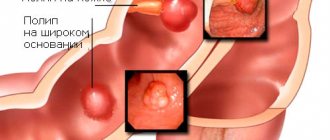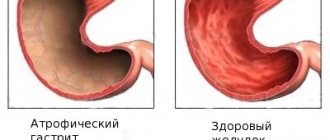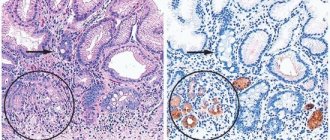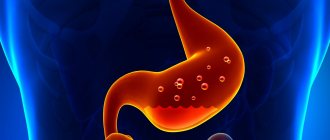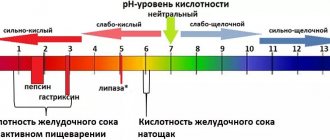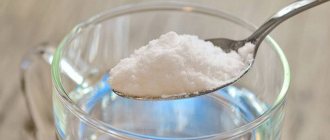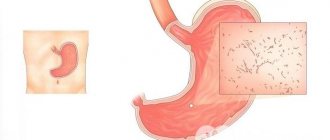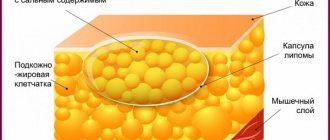- What is catarrhal gastritis?
- Causes and mechanism of development of catarrhal gastritis
- Symptoms of catarrhal gastritis
- Diagnosis of catarrhal gastritis
- Treatment of catarrhal gastritis
Inflammatory diseases of the digestive system are a fairly common group of pathologies that cause people a lot of trouble. There is probably no person who has not heard about gastritis and how it manifests itself and what provokes it. Now we will consider one of the types of gastritis - its catarrhal form.
Gastritis is a term that unites a large group of diseases with different origins and courses. Moreover, each of them is characterized by the fact that the mucous membrane of the organ undergoes inflammatory or dystrophic changes. It can be primary and occur as an independent disease, or it can be caused by another disease or intoxication of the body.
There are no exact statistics on the frequency of occurrence of individual forms of gastritis in the countries of the post-Soviet space, but it is reliably known that in the vast majority of cases, patients are diagnosed with a chronic form of the disease. What is noteworthy is that gastritis is not the lot of people only. Veterinarians detect inflammatory changes in the stomach wall of dogs and cats.
Causes
The causes of catarrhal gastritis are aggressive factors of the external and internal environment. Most often, the development of this type of gastritis is provoked by food causes:
- binge eating;
- eating food that is too hot or cold;
- ingestion of a large amount of alcoholic beverages;
- drinking carbonated drinks with a lot of acid.
Catarrhal type of pathology is caused by some pathogenic microorganisms - Helicobacter, staphylococci, streptococci, clostridia, E. coli. This pathogenic flora is activated due to weakening of the body’s immune defense and abuse of alcoholic beverages.
This pathology occurs due to the use of certain medications:
- non-steroidal anti-inflammatory drugs;
- antibacterial drugs;
- steroids;
- narcotic analgesics.
Gastritis of the catarrhal type also occurs as a result of inflammatory pathologies of the digestive organs - pancreatitis, cholecystitis, duodenitis. In these diseases, the gastric mucosa is affected by digestive enzymes.
Risk factors for the disease are: allergies, exposure to ionizing radiation. People exposed to these factors are more likely to develop a catarrhal form of gastritis.
Diet for erosive gastropathy
For erosive gastropathy, it is recommended to follow the “Table No. 1” diet.
The following products are prohibited:
- borsch;
- legumes;
- high-fat dairy products;
- strong alcoholic drinks;
- mushrooms;
- strong tea and coffee;
- fresh bread;
- sour fruits and berries;
- various marinades;
- sweets;
- spicy and fatty foods.
The list of permitted products includes:
- dried bread;
- boiled vegetables;
- milk soups with cereals;
- cottage cheese;
- boiled fish and meat;
- honey;
- porridge from: semolina, oatmeal, buckwheat and rice;
- sweet fruits and berries in grated form.
The intervals between meals can be about 3 hours. Portions of food consumed should be small, and food should be consumed not hot.
Classification
Doctors distinguish several forms of the disease:
- Acute - occurs as a reaction of the mucous membrane to overeating and drinking large amounts of strong alcoholic drinks. In the acute form of the disease, the processes of restoration of stomach tissue are disrupted.
- Chronic - is a consequence of an acute form of the disease. It is characterized by increased inflammatory processes, deep damage to the mucous membrane, accompanied by impaired secretion of hydrochloric acid and peristalsis. During the illness, there is progressive weight loss, loss of appetite, a constant feeling of unpleasant taste in the mouth, and nausea.
- Atrophic is a hereditary abnormality of the stomach, in which protective proteins are formed that negatively affect the structure of the mucous membrane. As a result of the immune reaction, cells die and atrophy develops.
In addition, there are other types of pathology:
- Focal catarrhal gastritis is diagnosed if a specific area of the gastric mucosa is affected. Most often, patients develop gastritis in the antrum of this organ.
- Catarrhal reflux gastritis - develops as a result of penetration of acidic stomach contents into the esophagus due to weakness of the cardiac region. The disease is caused by rough food, alcoholic drinks, and poor chewing of food. Patients feel pain along the entire length of the esophagus. Some of them note that food is stuck in the chest. These sensations occur during and after eating.
- Chronic superficial gastritis has no clearly defined symptoms. It is distinguished by the rapid destruction of the gastric mucosa, due to which the glands that produce hydrochloric acid die. Because of this, the acid balance in the stomach is disrupted. Food is poorly digested, which is why patients suffer from constant nausea, belching, heartburn, and bad breath.
- Distal - occurs due to improper use of anti-inflammatory drugs. Patients have increased stomach acidity, they constantly experience abdominal pain and heartburn.
What is catarrhal gastritis?
Catarrhal gastritis is the mildest form of the disease, in which the inflammatory process affects only the surface layer of the mucous tissue of the gastric walls. Typically, pathology is caused by factors that irritate the mucous membrane (bacterial, viral, nutritional, chemical, temperature). After eliminating the irritant, the mucous tissues are quickly restored. If left untreated, catarrhal gastritis develops into more severe forms of pathology.
Catarrhal gastritis is characterized by dystrophic and necrobiotic damage to the upper layer of the epithelium and glandular cells of the mucosa. Swelling of the mucous membrane and the appearance of pinpoint erosions and hemorrhages are observed. The secretory functions of the stomach are disrupted: first, the production of gastric secretions increases, then secretory insufficiency develops and the tone of the stomach wall decreases. If the inflammatory process spreads to the small and large intestines, gastroenteritis or gastroenterocolitis develops.
Symptoms
With catarrhal gastritis, the symptoms are always acute and appear suddenly. They are characterized by a high degree of intensity. An attack of pathology begins a few hours after exposure to the provoking factor. The following signs are characteristic:
- Severe pain in the epigastric region. Soreness appears approximately 4 hours after exposure to the irritant. Pain occurs as a result of irritation of nerve endings.
- Strong burning sensation behind the sternum.
- Nausea, vomiting. Due to inflammation of the mucous layer of the stomach, food cannot be fully digested. Its stagnation causes unpleasant feelings in the form of nausea, often ending in vomiting. It is forbidden to restrain the urge to vomit, because Such actions provoke a sharp increase in pressure in the stomach. A prolonged increase in intragastric pressure contributes to thinning and rupture of the gastric wall.
- Unpleasant belching. Appears due to the entry of gastric contents into the oral cavity.
- Heart dysfunction. Occurs due to irritation of the nerves of the celiac plexus.
- Poisoning of the body due to large amounts of toxic substances entering the blood. The entry of toxins into the bloodstream contributes to an increase in body temperature.
- An attack of gastritis is always accompanied by general weakness.
- Diarrhea. The release of large amounts of liquid excrement aggravates the human condition due to dehydration.
Upon examination, a dirty yellow coating with an unpleasant odor is found on the surface of the tongue muscle. Patients complain of dry mouth. In the vomit, one can see the remains of food that a person ate several hours ago, as well as accumulations of mucus and bile.
Description of the disease
Catarrhal gastritis refers to inflammation of the gastric mucosa, which is provoked by various aggressive factors. Since only the upper layer of the gastric mucosa is involved in the pathological process, this is superficial, or simple, gastritis.
According to static data, at least one attack of this disease was observed in 50% of Russians. This is the most common disease of the digestive tract. Inflammation begins acutely and can be severe.
The danger of the pathology is that even superficial damage to the mucous membrane can provoke the appearance of ulcers on it and cause gastric bleeding.
It develops more often in the lower part of the stomach, which is called the “pyloric” or “antral”. No digestion occurs here; chyme is formed in it, which then enters the intestines. This department is responsible for reducing the acidity of food that enters the duodenum.
Here are special glands that produce bicarbonates, which neutralize the hydrochloric acid of gastric juice. When their function is disrupted, the acidic food bolus is evacuated into the intestines and ulcers form.
But fundic gastritis, which is characterized by inflammation of the fundus of the stomach, can also develop.
Diagnostics
In order to detect the disease, a general examination of the patient and anamnesis analysis are performed. But this examination is not enough to make a diagnosis, so the patient is recommended to do:
- blood tests (general and biochemical);
- Analysis of urine;
- stool analysis;
- endoscopy (to detect the degree of inflammation and concomitant diseases);
- contrast radiography;
- ultrasound examination of the abdominal organs;
- computed tomography.
The catarrhal form of gastritis must be differentiated from pancreatitis, cholecystitis, peptic ulcer, appendicitis, and heart attack.
Treatment
Treatment methods are selected taking into account the severity of the disease. In all cases of pathology, patients are prescribed medications and nutritional therapy. To improve the results of therapy, traditional medicine methods are used.
General recommendations
To improve your health and prevent the development of dangerous complications, you must adhere to the following rules:
- Rinse the stomach and take sorbents. This is recommended if the cause of gastritis is food poisoning.
- Use painkillers if acute pain occurs.
- To drink a lot of water. Herbal decoctions, mineral water, weak and unsweetened tea are useful. In some cases, it is necessary to administer saline solutions parenterally. This way you can avoid dehydration that is dangerous to your health and life.
- Use antibacterial drugs to reduce the activity of Helicobacter pylori bacteria.
- Use antiemetics and antacids.
- Follow a diet.
Drug therapy
Medications with different spectrum of action are prescribed. The most commonly used types of medications are:
- myotropic antispasmodics - Drotaverine and Mebeverine;
- analgesic - Analgin, Nise;
- antibacterial with a broad spectrum of action - Doxycycline or Tetracycline;
- antiemetics - Domperidone, Cerucal;
- agents that reduce the intensity of hydrochloric acid production - Omez, Ranitidine;
- antacids - Rennie, Almagel, Maalox.
Nutritional Features
Doctors recommend avoiding foods that irritate the gastric mucosa. All dishes are consumed warm and pureed. The amount of salt and especially spices should be limited. Food is consumed frequently and in small portions: the recommended number of meals is 6 times a day.
Exclude from the diet:
- smoked meats;
- all types of sausages;
- black coffee, cocoa;
- any types of alcoholic beverages;
- baked goods;
- confectionery;
- potato;
- green onions;
- cabbage;
- legumes
Useful:
- vegetable soups;
- steamed rabbit, beef or chicken dishes;
- porridge;
- skim cheese;
- soft-boiled eggs;
- jelly and fruit drinks;
- compotes;
- decoction of rose hips and herbs, weak tea;
- fermented baked milk, milk;
- still mineral water.
Folk recipes
Traditional methods of treating pathology are supplemented with folk remedies. These include:
- Sprouted wheat. To prepare the medicine, take 100 g of washed grains and fill them with water at room temperature. Sprouted grains are crushed, seasoned with ½ tsp. vegetable oil and consume before meals. The duration of such therapy is 2 weeks.
- A mixture of aloe juice and honey. 100 g of honey is mixed with 250 g of juice. Take the product 1 tbsp. 3 times a day before meals. The duration of treatment is 3 weeks.
- Oat decoction. Add 100 g of oats to 1 liter of water and leave for 12 hours. Then bring to a boil over low heat and cook for half an hour. Cover the pan with the broth and leave for another 12 hours. Drink a glass 3 times a day for 3 weeks.
- A mixture of honey and olive oil. To prepare it, combine 1 glass of honey and 600 g of olive oil. The juice of 2 lemons is added to the composition. The mixture is stored in the refrigerator and shaken before each use. Take 1 tbsp. 3 times a day half an hour before meals for 2 weeks.
Traditional medicine tips
The following components of traditional medicine are considered useful:
- Sprouted wheat grains.
- Honey - usually combined with aloe juice to enhance the effect.
- Oats as an anti-inflammatory agent.
- Juice from fresh carrots or potatoes.
- Herbal mixture of St. John's wort, rhubarb root, valerian and marsh cudweed.
- Infusion of burdock leaves.
Modern traditional medicine does not exclude the use of traditional healing recipes. Many doctors simply strongly recommend tinctures and decoctions of medicinal herbs as one of the components in complex treatment. Relieving acute symptoms and getting rid of grass disease will not help. But they can be used during restorative and preventive therapy.
Such prescriptions are effective only when the patient realizes that an incorrect lifestyle has led to severe pathology. Therefore, diet, healthy foods, and a healthy lifestyle are no less important on the path to recovery.
This type of gastritis is dangerous due to complications. This is an ulcerative disease, mucous, erosive or phlegmonous gastritis, which is difficult to treat. The most tragic consequences are surgery or gastric resection. Catarrhal gastritis is a simpler type. With timely help, it can be treated simply, and if the doctor’s recommendations are followed, attacks do not recur.
In order not to spread the consequences of the disease to other organs, and to reduce the consequences of food intoxication, traditional medicine recommends the use of herbs and herbal mixtures that have an anti-inflammatory and antibacterial effect. They can be purchased at any pharmacy, and these are:
- St. John's wort;
- chamomile;
- flax seeds;
- calendula;
- yarrow.
The herbs are brewed in the usual way, like regular tea, and drunk warm. There are no restrictions, especially if you are dehydrated. But it is advisable to exclude sugar during treatment or recovery. Sugar can kill all the beneficial qualities of medicinal decoctions. This treatment must last for a long time.
The mucous membrane of the organ is affected quite quickly, but recovery will take at least two weeks after complete recovery. Slime is ideal for this purpose. They are obtained using flax seeds, rice water or oatmeal. If everything is clear with the decoction and porridge, then there is no need to prepare a flax drink at all. It is enough to grind the seeds in a coffee grinder and consume two teaspoons of powder on an empty stomach, washing it down with warm water or any herbal decoction.
The use of traditional medicine will not give the desired effect if the patient does not follow basic nutritional rules and the diet recommended by the attending physician.
Prognosis and prevention
With timely initiation of treatment, the prognosis is favorable. Prevention of pathology consists of following recommendations for healthy eating habits, giving up alcoholic beverages and smoking. It is necessary to rationally take anti-inflammatory and antibacterial drugs.
Regular exercise and avoiding stressful situations are of great importance. It is necessary to observe basic rules of personal hygiene. Secondary prevention of gastritis consists of preventing the development of phlegmonous or erosive gastritis, perforated gastric ulcers.
https://youtu.be/a0dz7mBsCiU
